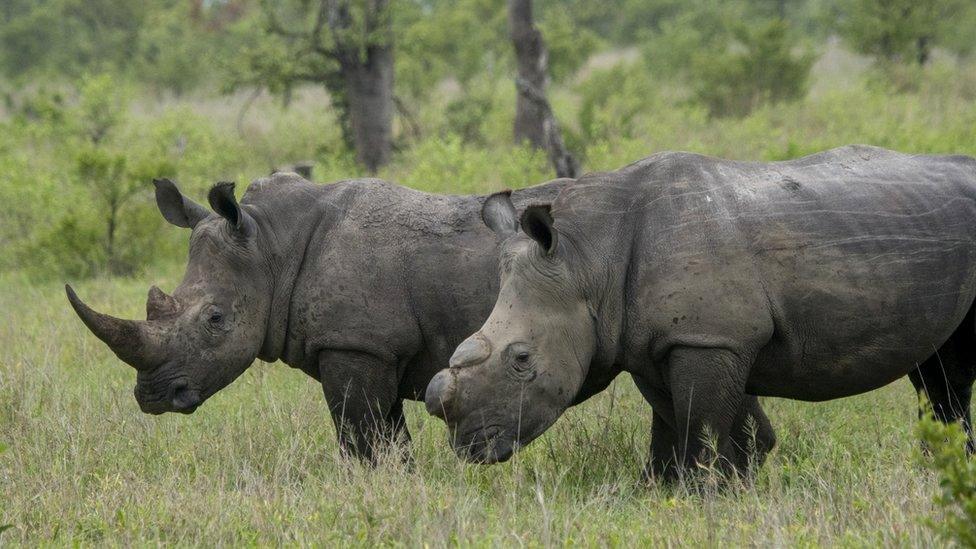Puppies trained in Wales save wildlife in Africa
The team have trained and deployed 15 operation dogs to to five sub-Saharan African countries
- Published
A passion for wildlife conservation and a love for dogs has led to the creation of a non-profit organisation that trains puppies to protect endangered species.
Dogs4Wildlife, based in Carmarthen, supports frontline conservation efforts across sub-Saharan Africa.
Founders Darren Priddle and Jacqui Law train and develop specialist conservation dogs to support anti-poaching rangers.
"There is no better feeling on this planet than to know that our dogs are saving lives," said Jacqui.
Darren and Jacqui are professional dog trainers and have been developing operational working dogs for 15 years.
Darren said: "Our love for dogs and our commitment to developing them for specialist work helped us to decide 'why not?'
"If we are able to train dogs to track people in this country, then why can we not train dogs to help protect our wildlife all across Africa and that's where Dogs4Wildlife was born."
Rhino poaching on the rise in South Africa
- Published27 February 2024
Two octopuses found walking on Welsh beach. Video, 00:02:18
- Published24 February 2022
Mouse filmed tidying up man's shed every night
- Published7 January 2024
The dogs are bred in-house and go through "extensive and advanced training" and development programme that starts from as early as two days old.
"Relationship is key when deploying a dog to work with anti-poaching rangers," Darren added.
"We do a lot of relationship building, a lot of conditioning in terms of the patterns of behaviour we want from the dog.
"Whether that be human scent tracking, specialist detection work or operating in a control base on a wildlife reserve."
The team then "impart all of that knowledge and experience" to the rangers once the dogs have been deployed to a wildlife reserve.
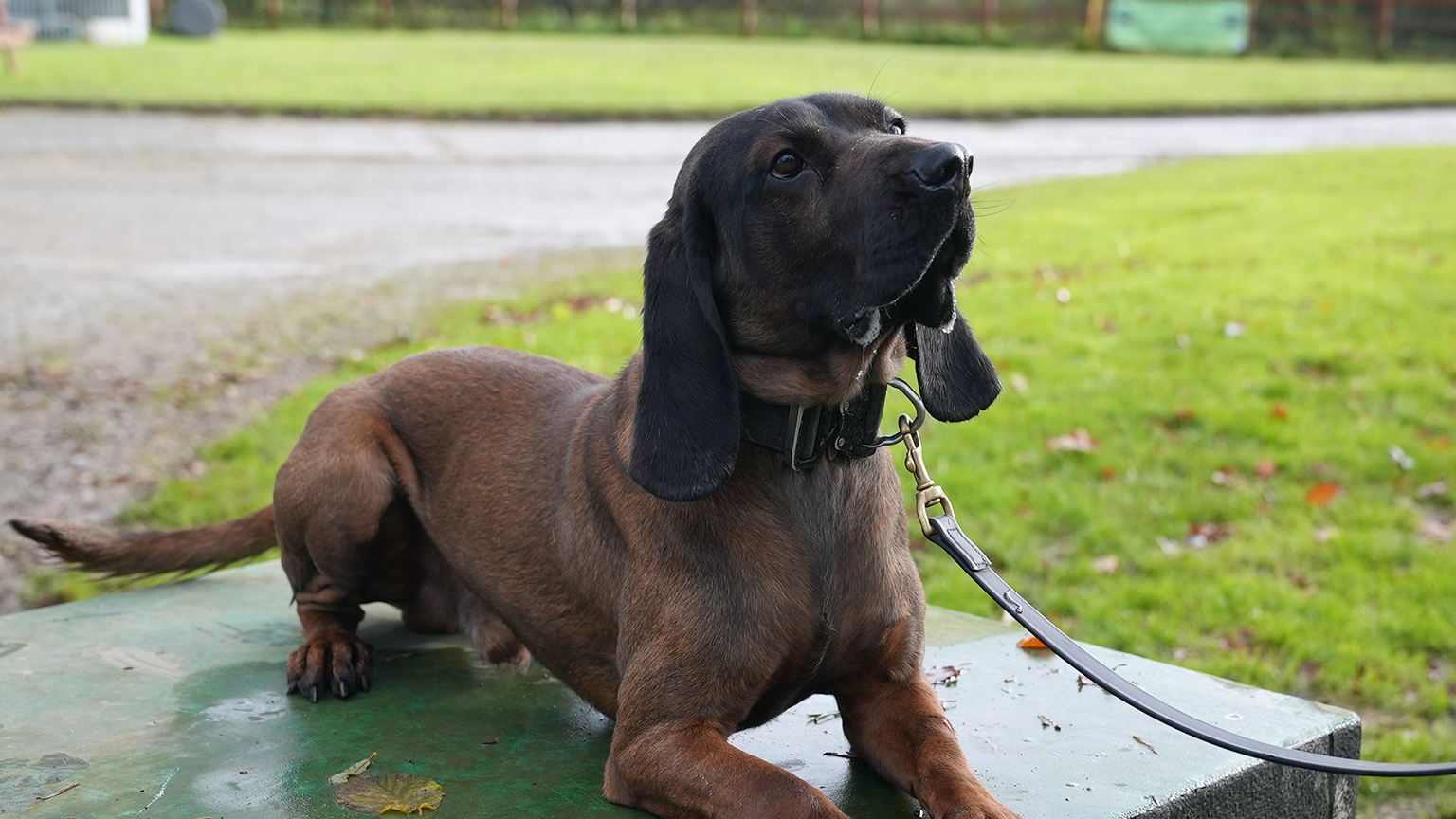
Nkosi is a Bavarian mountain hound and one of the dogs trained at Dogs4Wildlife
The team have trained and deployed 15 operation dogs to to five sub-Saharan African countries including Zimbabwe, Tanzania and Mozambique.
They also provide consultancy and specialist training to different organisations, including the Akashinga, an anti-poaching group in Zimbabwe.
In October, one of their dogs Shinga tracked a poacher 4.5 km (2.8 miles) straight to his front door after a warthog was killed in Zimbabwe.
The team's work in Africa not only supports the anti-poaching rangers but also communities in the area.
They are involved in the Siyafunda Ngemvelo programme that allows schoolchildren to gain access to different reserves.
The aim of the programme is to inspire the future generation "to love and support the natural world that surrounds them", said Darren.
The team is also working on a new project which helps empower young girls to become wildlife rangers "so they can make a difference in their future," said Jacqui.
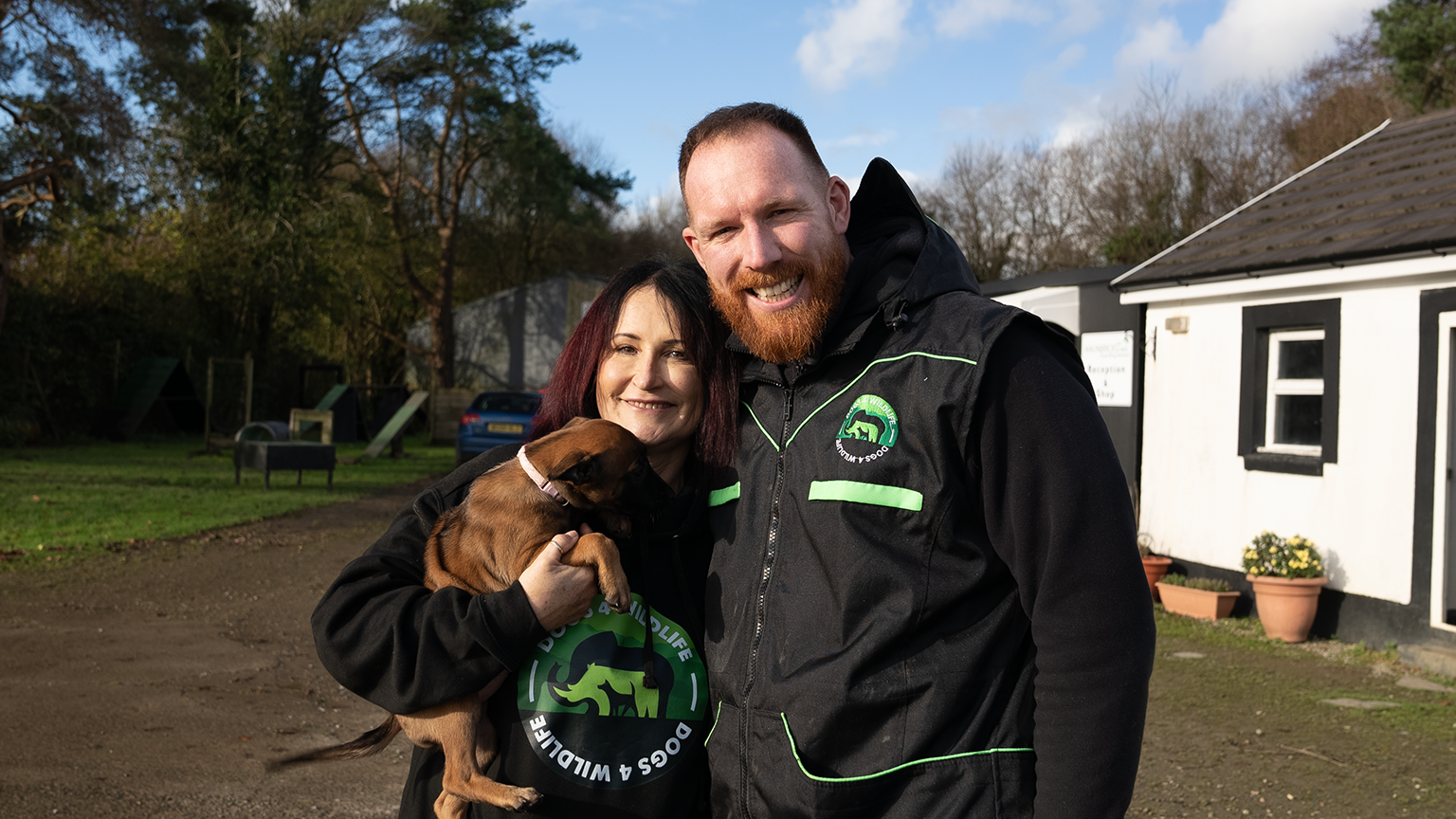
Jacqui and Darren have been developing operational working dogs for 15 years
Dogs4Wildlife train two types of specialist conservation dogs - human scent tracking and specialist detection.
The human scent tracking dog is specifically trained to follow a trail left by a poacher or would-be poacher and it can track anywhere up to 20km (12.4 miles).
The specialist detection dogs are specifically trained to operate in different environments including airports, ports and border check points.
They are trained to recognise a certain odour, such as wildlife, and search different environments.
"We've trained a few operational police dogs in the UK so it was just tweaking what we were doing with that training and developing it on different scents and odours," said Jacqui.
As part of the training, they have teamed up with zoos across the UK to help the puppies become desensitised to wildlife.
"The zoos allow us some incredible access where we can take our puppies into the enclosures so they can see, smell and hear the sounds of different of wildlife," said Darren.
"This allows them to learn to be cool, calm and collected in their presence."
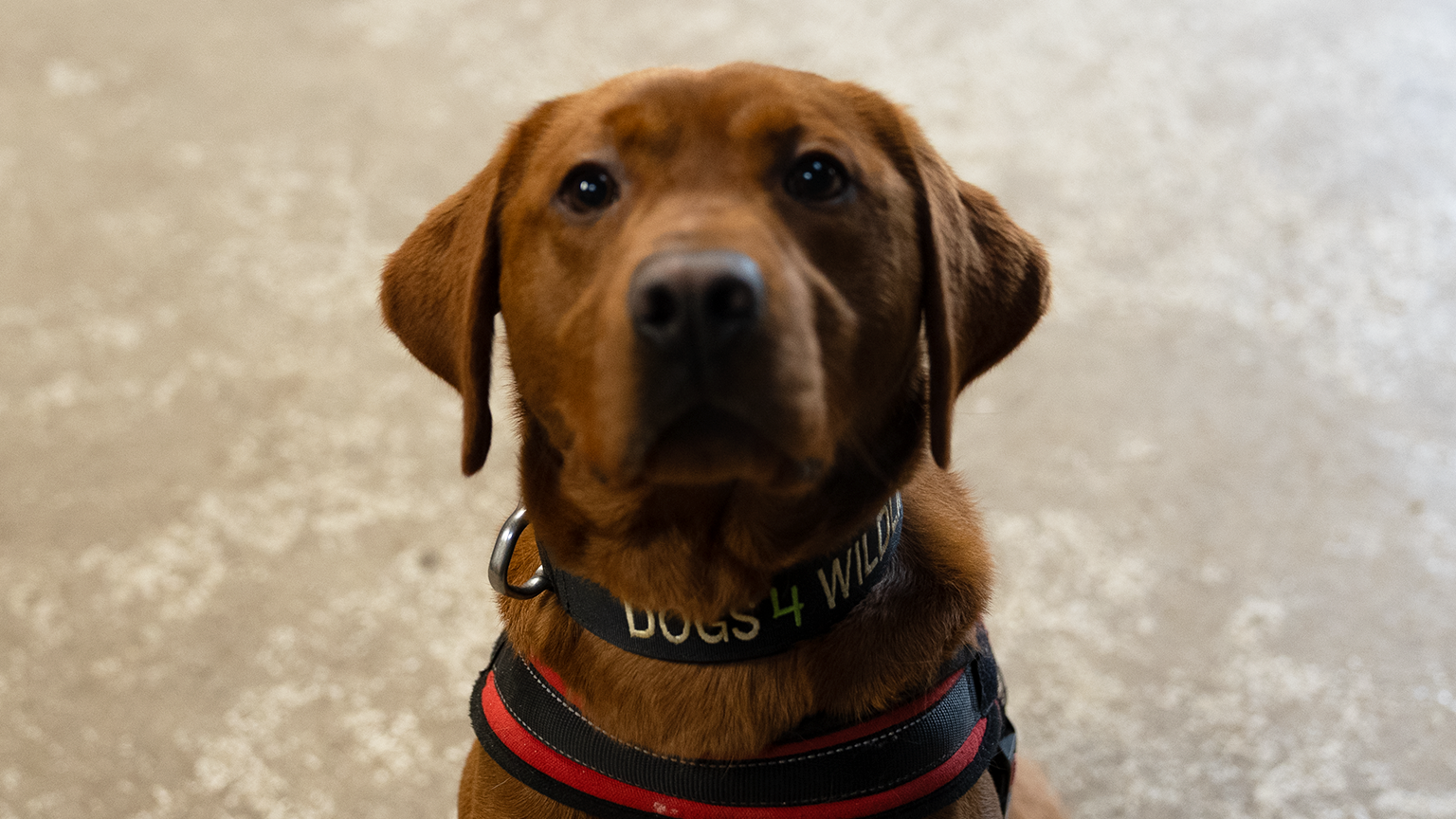
Rocket, the Labrador, is a specialist detection dog
Darren and Jacqui are "exceptionally proud" of the changes their dogs have made and said they are capable of much more.
"With a dog's capabilities they are able to increase and improve biodiversity and build on the diversity of an eco system," Darren added.
"They are incredibly capable and intelligent animals and what better way to use animals to save animals."
Related topics
- Published20 April 2023
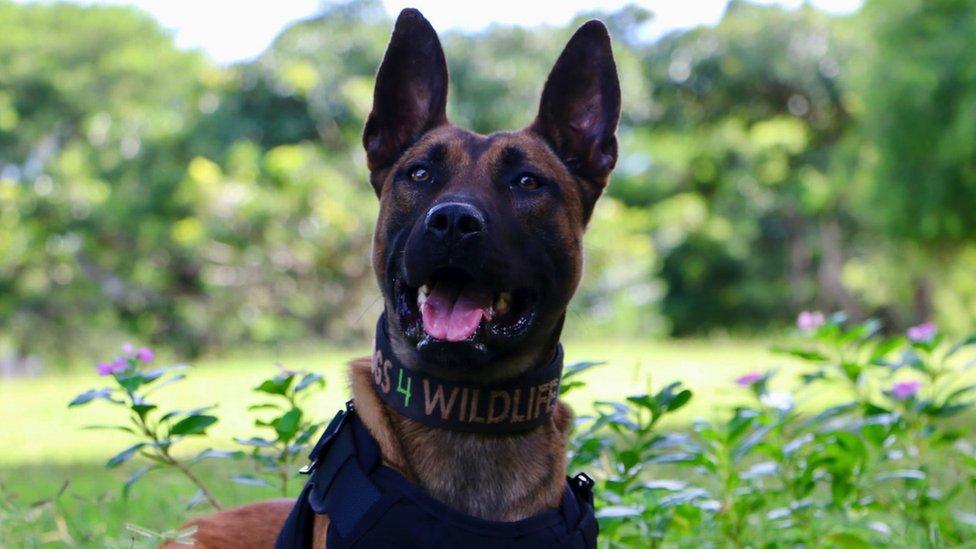
- Published4 December 2022

- Published1 February 2021
